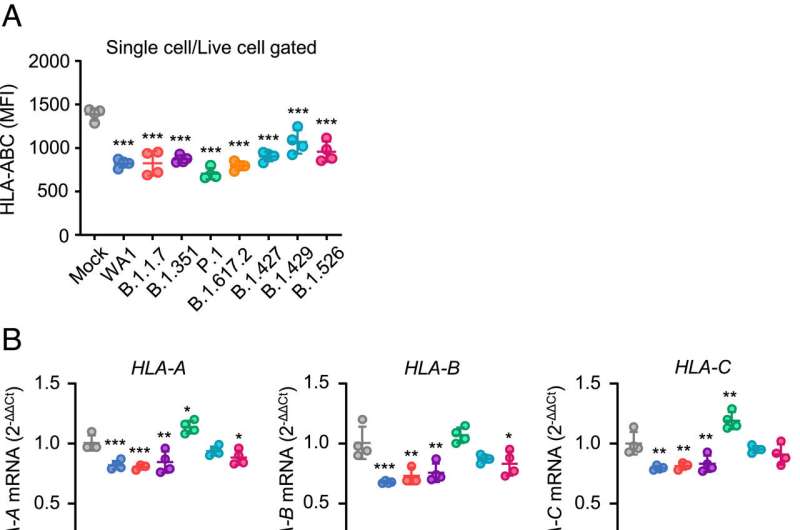This article has been reviewed according to Science X's editorial process and policies. Editors have highlighted the following attributes while ensuring the content's credibility:
fact-checked
peer-reviewed publication
trusted source
proofread
Study offers insights into how COVID variants escape immune system 'killers'

Omicron subvariants of SARS-CoV-2—the virus behind COVID-19—have shown an uncanny knack for evading antibodies produced either by vaccines or exposure to earlier versions of the virus, leading to many breakthrough infections. However, in order to sicken people, these viral variants must also avoid "killer" T cells, immune cells that are unleashed when the immune system detects foreign pathogens.
A new Yale study published April 10 in the Proceedings of the National Academy of Sciences reveals new insights into how these omicron variants are able to avoid destruction by these T cells.
For the study, a team led by Miyu Moriyama, a postdoctoral fellow at Yale School of Medicine, measured activity of MHC (major histocompatibility complex) molecules that present fragments of viruses for recognition by appropriate T cells. These MHC molecules alert the T cells of foreign pathogens that then become targets for the T cells.
The researchers found that the activity of these MHC molecules was substantially lower in cells exposed to five omicron subvariants of SARS-CoV-2 as well as earlier versions of the virus, according to Moriyama, who is part of the lab of Akiko Iwasaki, Sterling Professor of Immunobiology.
But the omicron variants, the researchers found, were particularly adept at shutting down the activity of MHC compared with earlier versions of the COVID-19 virus. Meanwhile, cells infected by a flu virus were found to have much greater MHC activity.
Reduced activity in these MHC molecules, researchers say, may make T cells less likely to locate COVID viral targets.
"The findings will help guide researchers as they investigate possible ways to overcome MHC suppression by viral infections and may help in the development of vaccines that mobilize T cells as well as antibody response against viruses," Moriyama said.
More information: Miyu Moriyama et al, Enhanced inhibition of MHC-I expression by SARS-CoV-2 Omicron subvariants, Proceedings of the National Academy of Sciences (2023). DOI: 10.1073/pnas.2221652120


















